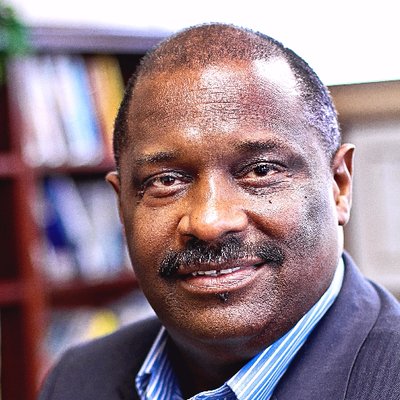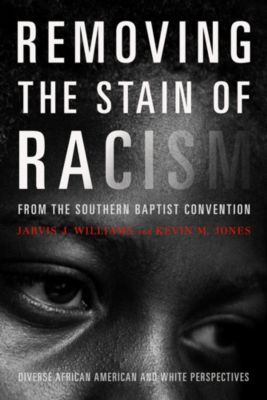
In heaven, all our ethnic distinctions will be present around the throne. Churches can reflect this through their Black history celebrations.
By Mark Croston
We can’t tell the whole numerical narrative with just prime numbers. The alphabet chronicle is incomplete with just the consonants. The most soulful jazz still can’t express the entire musical corpus. As great as the Pauline letters are, they are insufficient as a biblical canon to themselves. The Euro-American perspective is vital for all of us, but it cannot tell the whole of the human story.
In the same way, all of our histories are incomplete without seeing where they intersect with Black history. It is a portion of all of our history that has been at times forgotten, ignored, overlooked, dismissed, and even misstated. It has been at times eulogized instead of historized. So, it is true that we cannot fully know who we are unless we know from whence we have come.
The goal of honoring Black History Month in your church
It is not uncommon for me to have to answer someone who questions, “Why do we have to be Black and white? We are Christians, why can’t we all just be people?” Or they might say, “Why do we have a Black church, why can’t we all just be church?” Well, I would like to say that even though I have a passion for soul food, I still think we need cheese pizza, beef burritos, goat vindaloo, jerk pork, kung pow chicken, shrimp pad thai, and vegetarian eggplant moussaka.
“All churches should embrace their own distinctives as they are working to make everyone who comes completely welcome.” — @CrostonMin Click To TweetOur goal should not be to morph so all churches become exactly alike. But like restaurants, all churches should embrace their own distinctives as they are working to make everyone who comes completely welcome.
Remember, our uniquenesses all tell a part of the human story—to ignore them is to ignore a part of God’s good creation.
After this I looked, and there was a vast multitude from every nation, tribe, people, and language, which no one could number, standing before the throne and before the Lamb. They were clothed in white robes with palm branches in their hands. And they cried out in a loud voice: ‘Salvation belongs to our God, who is seated on the throne, and to the Lamb!’
Revelation 7:9-10, CSB
Even when we get to heaven, all our ethnic distinctions will be present around the throne. Let’s put this passage on display in every church through intentional and thoughtful Black History celebrations.
Ways to honor Black History Month in your church
1. Celebrate the ethnicity of every member of your congregation
Hang flags from all your members’ nations of ancestry in the sanctuary. Have a potluck with foods from their ancestral homelands, or have members dress in the attire of their ancestral country.
2. Racial Reconciliation Sunday
This year, Racial Reconciliation Sunday is February 26. It’s not talked about much in many of our churches these days, but it is a great time to make an intentional effort to broaden our churches’ reach and understanding. I like the idea of having a pulpit exchange with a preacher and/or choir coming from a church of a different ethnicity than the prominent ethnicity in your church. A number of times, I have been the first Black pastor to preach in a pulpit. It is not the end goal, but it is a step in the right direction.
3. Host an open, honest panel discussion on race-related issues
Include a time of interactive questions from the congregation. Hit the tough issues that make people feel uncomfortable. We can never move forward in becoming more like Jesus in this area without this kind of loving but challenging dialogue.
“We can never move forward in becoming more like Jesus on race-related issues without loving but challenging dialogue.” — @CrostonMin Click To Tweet4. Have mixed racial groups watch a modern movie highlighting a portion of Black history
After the movie, have a time of discussion. Here are a few to consider: Hidden Figures, Race, 12 Years a Slave, Selma, 42, Just Mercy, Men of Honor, The Help, or Harriett. (Note: Some of these films are gruesome in their depictions, and discretion is required.)
5. Lead a Bible study with your racial eyes open and antenna raised
Consider studying Jesus on race, race and the unhindered gospel in Acts, or the challenges of being Philemon and Onesimus.
6. Invite people to join book clubs
Host book clubs where groups read and have a four-week discussion around the book, Removing the Stain of Racism in the Southern Baptist Convention or some other similar work.
7. Encourage your pastor to preach a sermon series
Here are some ideas:
Rhythm of Life – a series about important issues using popular songs to express the theme of each message. Some titles might be “God Bless the Child,” “Respect,” “We Are Family,” “I Believe I Can Fly,” and “If This Isn’t Love.”
We’ve Come This Far By Faith – a series tying the faith of the patriarchs to the faith that has sustained our people
Strength From the Spirituals – Some themes might be “Go Down Moses,” “God Put a Rainbow in the Clouds,” “Steal Away,” “Couldn’t Hear Nobody Pray,” and “We Shall Overcome.”
Becoming Brothers – A series from Philemon on how to grow beneficial relationships, bringing out the racial and class overtones in the text.
In celebrating Black History Month in your church, you bring us all a little closer to heaven.
For permission to republish this article, contact Marissa Postell Sullivan.

Dr. Mark Croston
Mark is the national director for Black church ministries at Lifeway Christian Resources.








